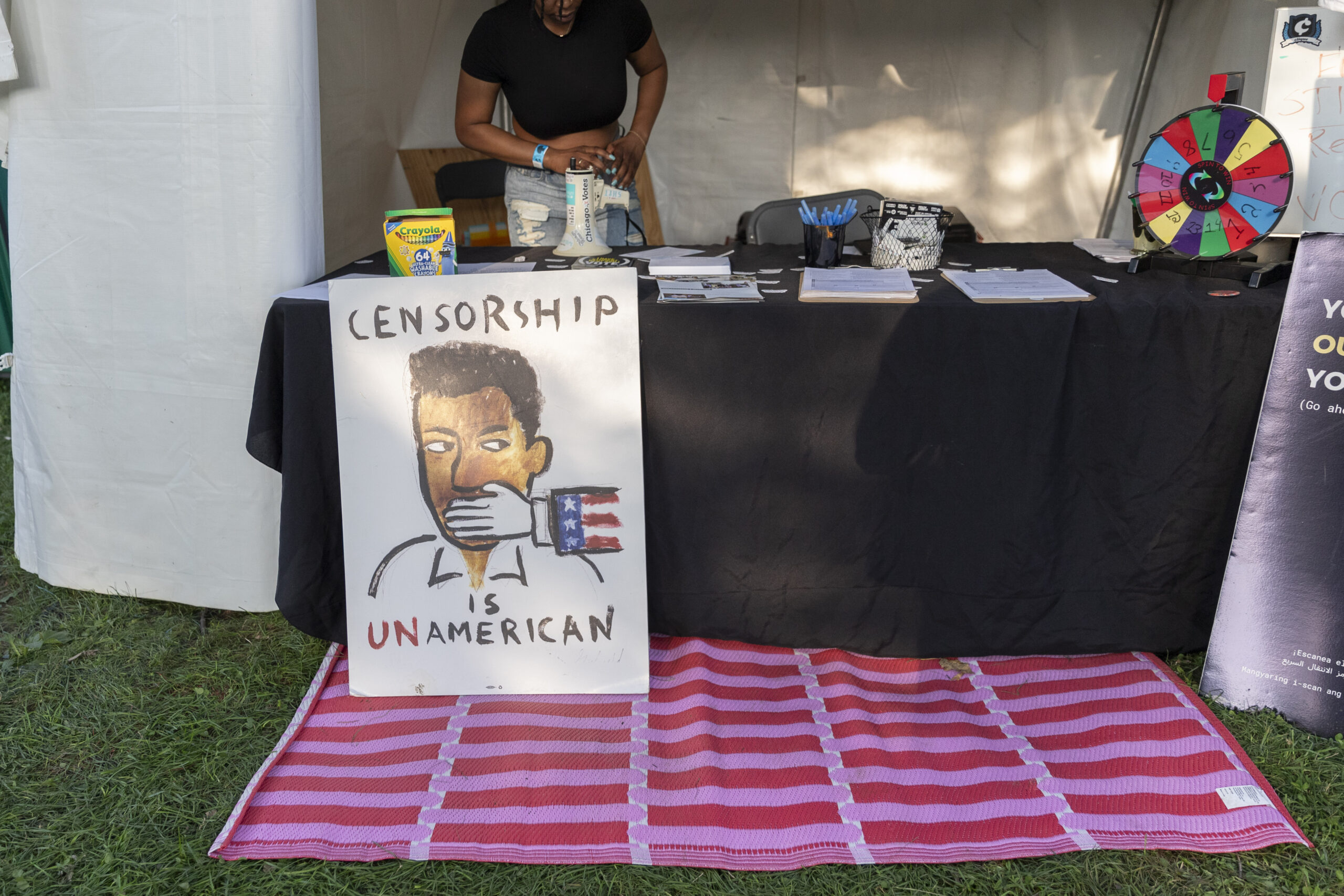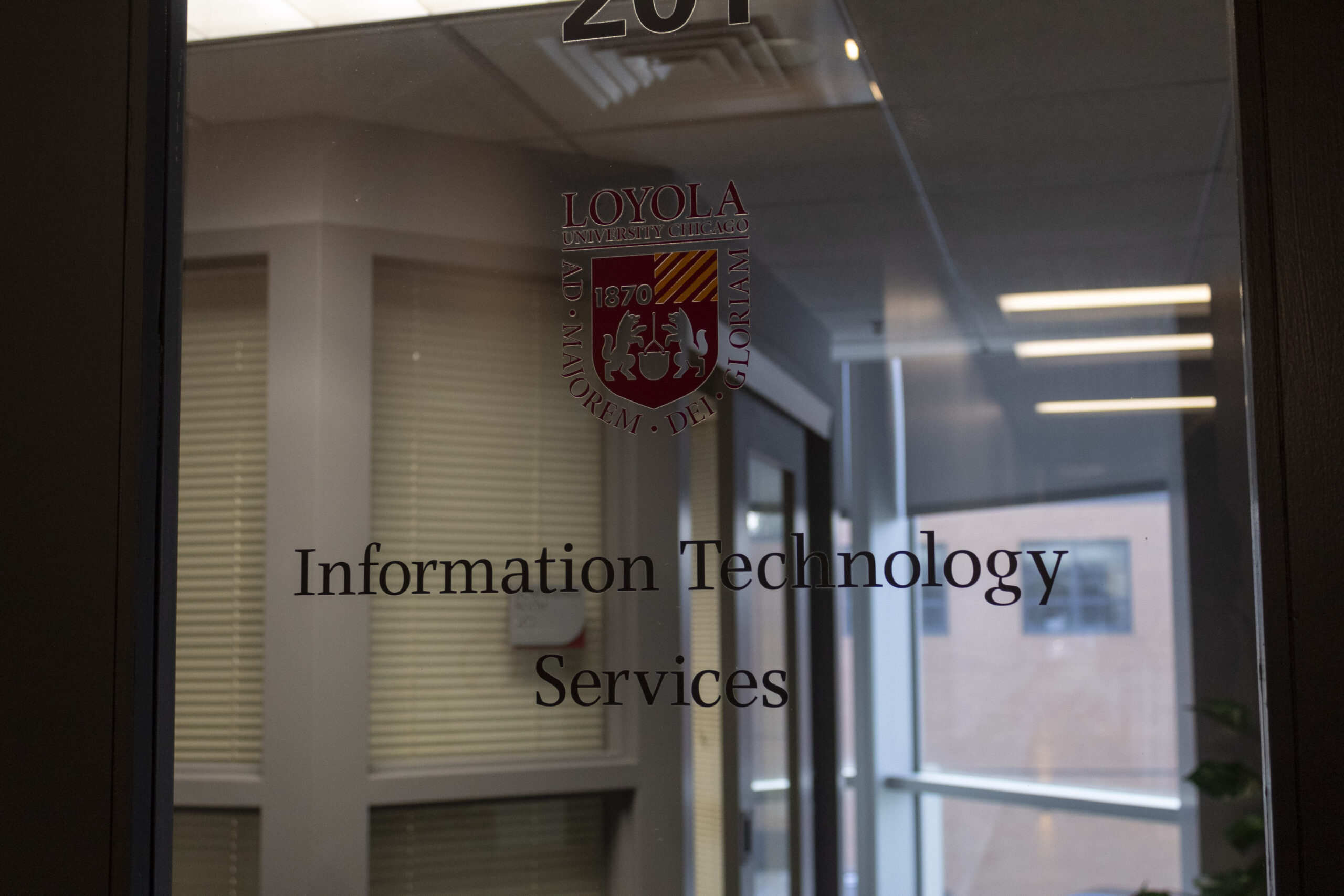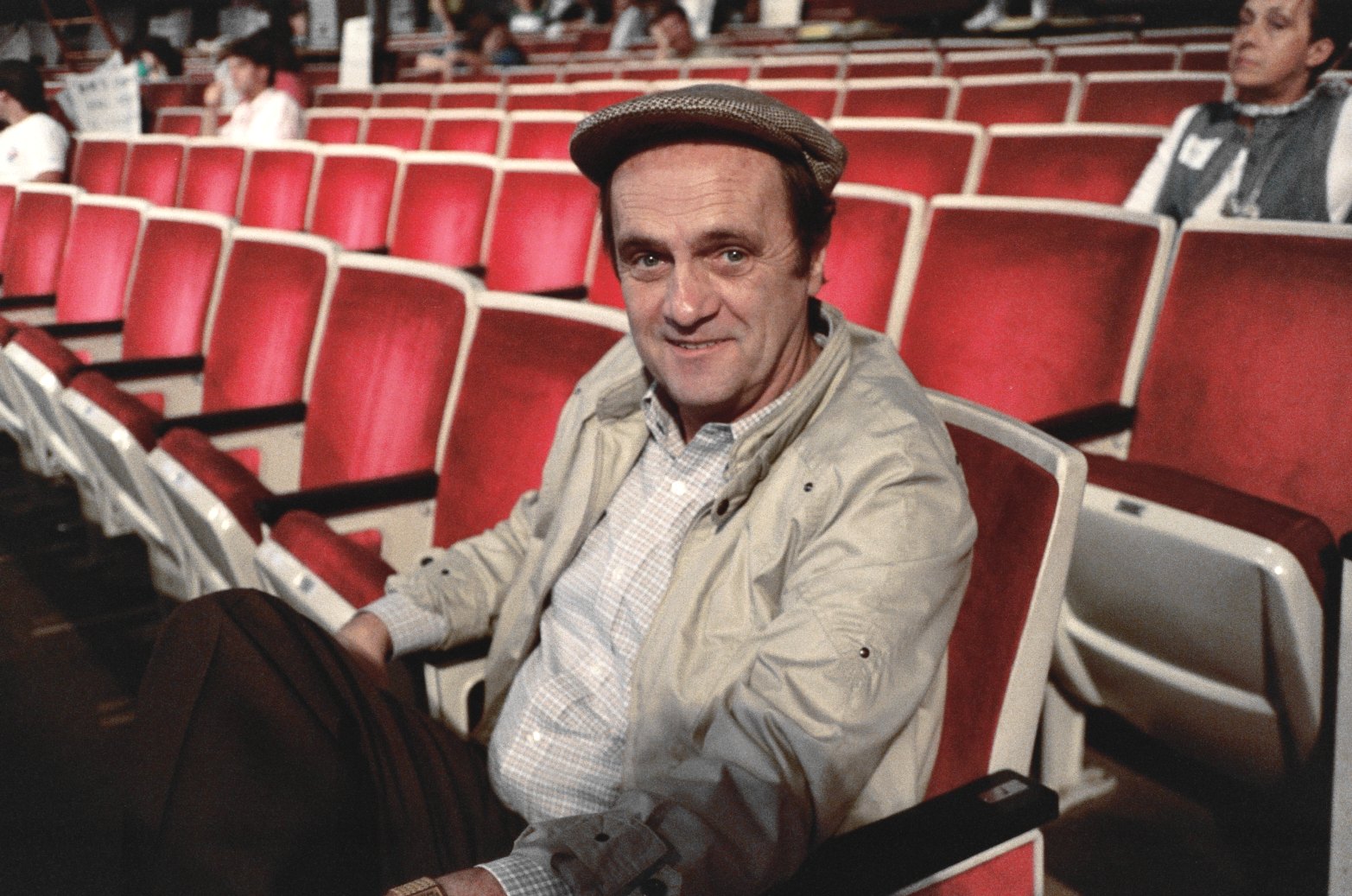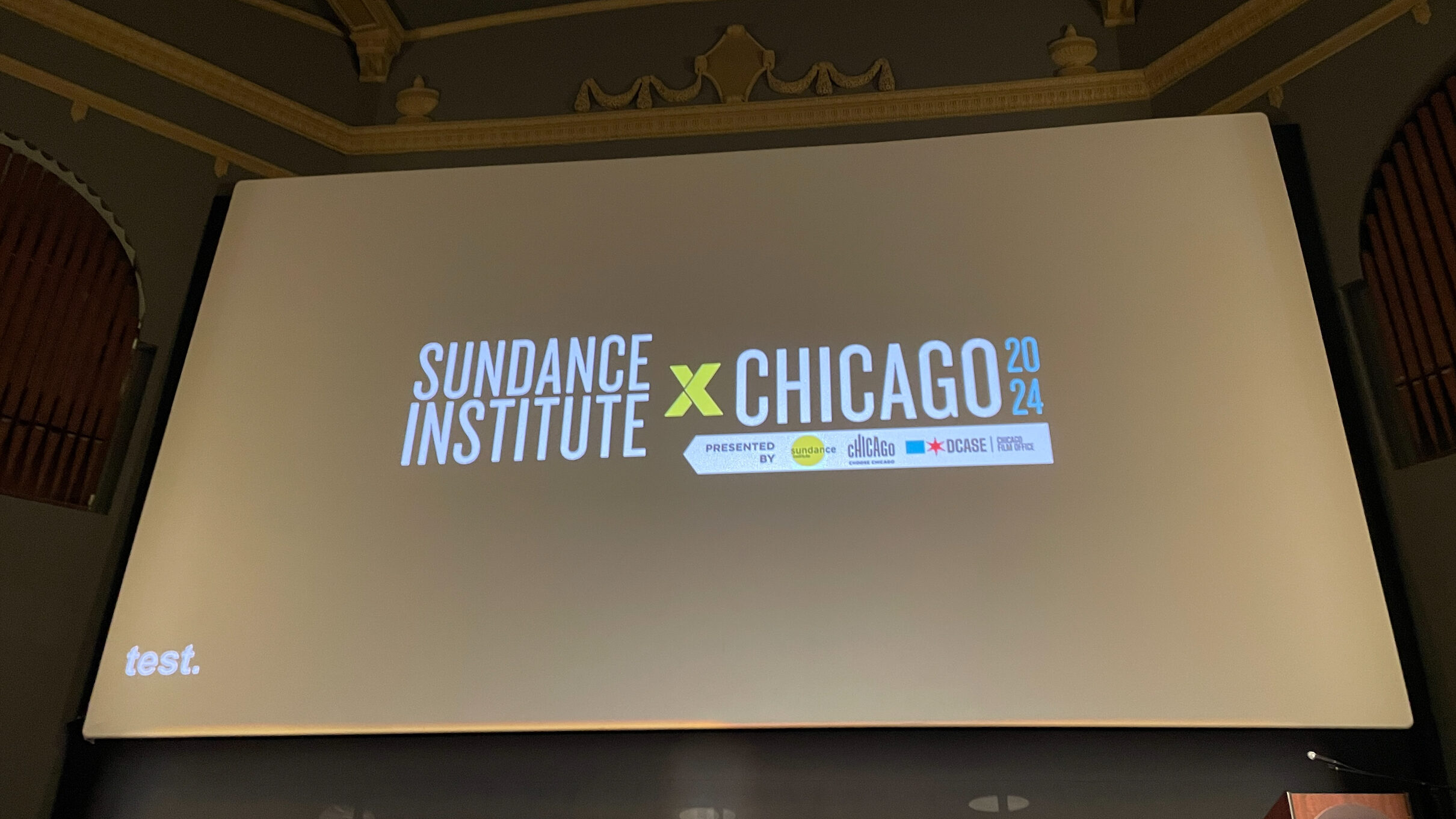Members of the Coalition for Solidarity and Justice protested against Loyola’s investments in companies that construct weapons used in Israel’s attacks on Gaza in the Damen Student Center following a financial town hall meeting Feb. 14.
Members of the Coalition for Solidarity and Justice protested against Loyola’s investments in companies that construct weapons used in Israel’s attacks on Gaza in the Damen Student Center following a financial town hall meeting Feb. 14.
Around 100 students gathered in Damen around 12:30 p.m. holding signs with messages such as “Stop Funding War” and chanting “Board of Trustees, you can’t hide, we charge you with genocide.” A banner reading “WAR IS DEATH LOYOLA DIVEST” was held by students over the balcony on the second floor.
Multiple students gave speeches during the protest where they expressed anger with Loyola’s investments and drew attention to things they said students can do to raise awareness and help the cause.
Students for Justice in Palestine President Lena Abushaban said the main purpose of the protest was to bring attention to Loyola’s investments and to also make it a point to attend the town hall.
“Knowing divestment has been something that has been on everybody’s plate for a while now, we decided that today might have been the best day to protest against the university’s awful, awful investments,” Abushaban said. “There’s a lot of traffic in here today. We wanted to make sure that we were being seen and we were being heard.”
The Coalition for Solidarity and Justice passed out flyers during the protest which listed the different demands they had for the university in regards to defunding from certain companies such as Boeing, Raytheon, Lockheed Martin, General Dynamics and more.
“Loyola divest from weapons manufacturers which arm Israel’s Genocide of Palestinians in Gaza,” the flyer read.
Loyola Spokesperson Matt McDermott wrote in an email to The Phoenix divesting from these companies wouldn’t be possible.
“Loyola has already adopted and published the Sustainable Investment Policy, which considers the University’s commitment to sustainability, and the aspiration to contribute to a more just, humane, and sustainable world in our investment policy and practices,” McDermott wrote. “As such, Loyola will not adopt other calls for divestment.”
McDermott referenced the town hall from that day where Senior Vice President and Chief Financial Officer/Chief Business Officer Wayne Magdziarz said out of Loyola’s overall endowment portfolio of about $1 billion, there is 7% which needs to be liquid and flexible.
“Wayne pointed out that, of that 7%, there is a small 0.32% of immaterial/unavoidable holdings of companies that we might not directly invest in but — by nature of an index fund that holds hundreds of stocks — have minimal exposure to in the portfolio,” McDermott wrote.
The flyer also referenced an anti-war investment legislation, a document outlining the Coalition for Solidarity and Jusice’s divestment plan for Loyola, which was passed through the SGLC unanimously two years ago, The Phoenix previously reported. It has still not been passed through the Board of Trustees, according to the flyer.
Member of the Coalition of Solidarity and Justice Lupe Nieto Ramirez said it’s “insane” the anti-war investment legislation has been being discussed for years and has been sidelined by the university. He said it goes against everything Loyola says it stands for.
“Why does our money fund genocide?” the flyer read. “Loyola University, stand true to your Jesuit values and divest from war.”
Prior to the protest, SJP members attended the town hall hosted by Magdziarz in the Sister Jean Multi-Purpose Room of the Damen Student Center and asked questions regarding Loyola’s investments in these companies.
Nieto Ramirez expressed his anger and disgust with the Board of Trustees and various Loyola administrators for their investments and questioned how they are upholding Jesuit values while still continuing to fund the various companies.
Magdziarz said he didn’t know how to respond to the question during the town hall meeting and offered to talk to the student more after the town hall.
Abushaban also asked in the town hall why SJP has been “shut down” when they have asked to hold meetings with Chief Investment Officer Katherine Wyatt about finding a new student representative on the Board of Trustees and to go over Loyola’s investments. Abushaban said SJP wants to help and support the administration in finding a new student representative to speak for students as to where their tuition dollars are being put.
Abushaban said SJP, along with other student leaders, had a meeting scheduled with Wyatt last semester but the meeting was pushed and then canceled by the request of Wyatt and the Board of Trustees.
Wyatt didn’t reply to The Phoenix’s request for comment.
Magdziarz said he pledged to find a new student for representation on the Board of Trustees, as there is currently no student representative.
Abushaban said the protest was also meant to draw attention to when Israeli forces attacked Palestinians Feb. 12 in Rafah, a city on the southern edge of the Gaza strip, with a series of airstrikes, the Associated Press reported. Over one million Palestinians had previously fled to Rafah to escape the violence elsewhere. Israel has killed more than 28,000 Palestinians since Oct. 7 and displaced over 80% of the population, according to AP.
“Our university right now is funding those, not caring,” Abushaban said. “Telling us to our faces that they’re not gonna do anything about it. They want to be practical.”
In her speech at the protest, Abushaban asked people to not just support their divesting campaign but to also boycott companies such as Starbucks, who she said are complicit in genocide.
Some people have been boycotting Starbucks because of when it sued Workers United, the union which organized their employees, because the union posted a pro-Palestinian message on social media, AP reported
“I want everybody to know that even if it is inconvenient for them and uncomfortable for them, they should take it upon themselves to do their own research and to boycott these companies,” Abushaban said.
Abushaban said she wants to encourage students to continue urging Loyola to divest as many members of The Coalition of Solidarity and Justice are graduating and they fear the campaign will collapse as has happened in the past.
Nieto Ramirez, who also spoke at the protest, said he mainly wanted students to see how institutions like Loyola are “elitist” and how they care more about capital than they do the students.
“The profit motive is everywhere in every facet of our existence and it’s here at Loyola,” Nieto Ramirez said. “At the end of the day, when funding these corporations, Loyola, as an institution, is getting something back. It’s an investment for a reason, but at what cost? At the cost of funding war machines.”
Deena Al-Ali, a student participating in the protest, said she attended because of her Palestinian roots and because she believes in justice. She said it’s very important for her and her family to protect their Palestinian heritage and identity.
“I am disgusted by the fact that my tuition is being paid to corporations that are killing my people,” Al-Ali said.
Al-Ali said she encourages people to research why the history of what’s happening right now in Palestine didn’t start Oct. 7.
“This entire movement began on the idea that Palestinians are less than human beings than they deserve to be and this is an entirely colonial movement,” Al-Ali said. “Resistance is justified if people are occupied and there will be a free Palestine in our lifetime I hope.”
Featured image by Aidan Cahill / The Phoenix











